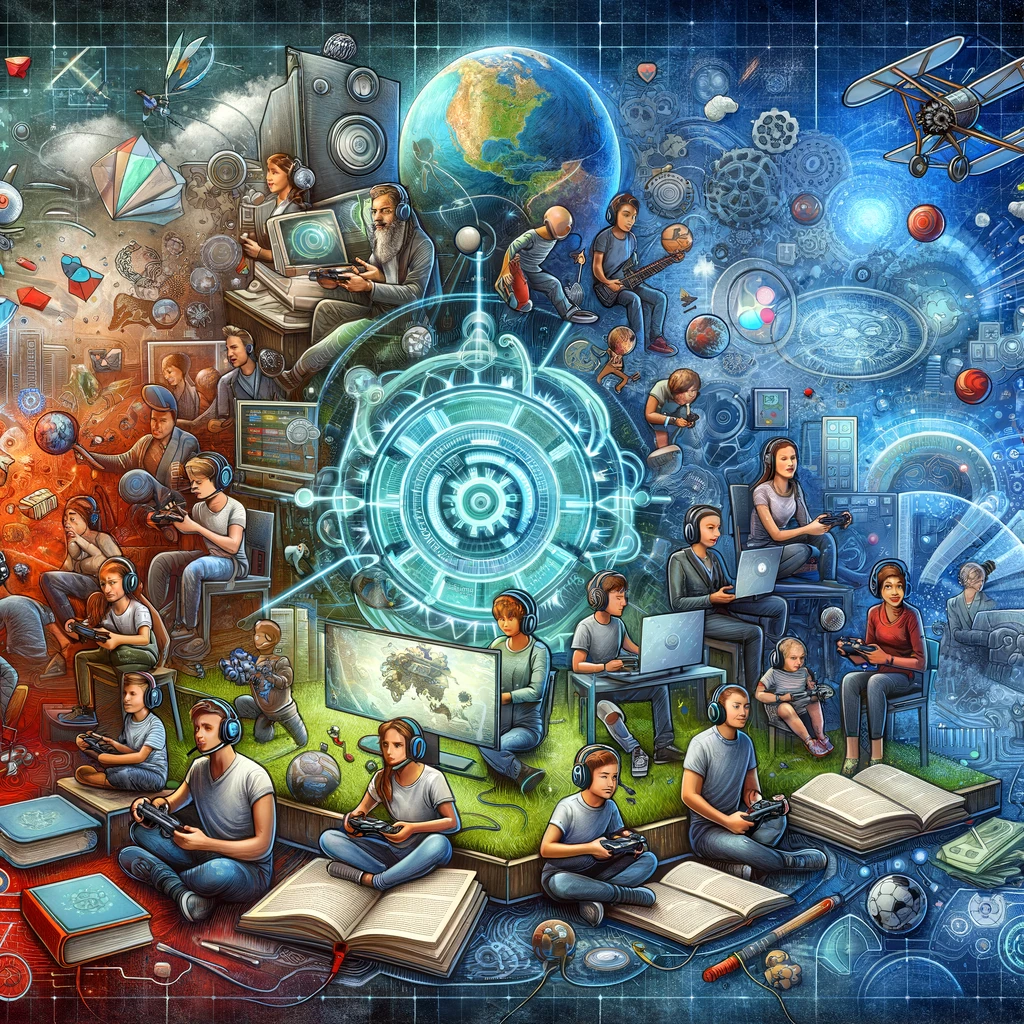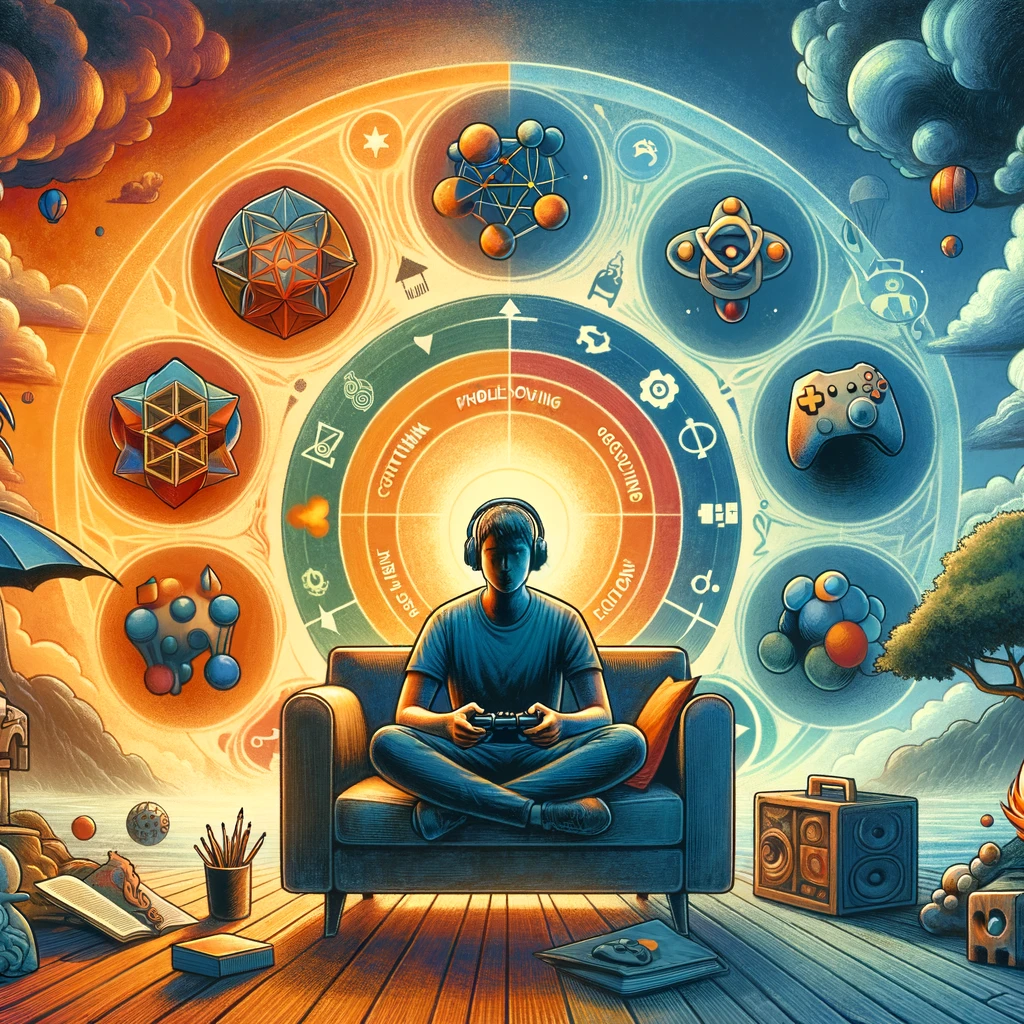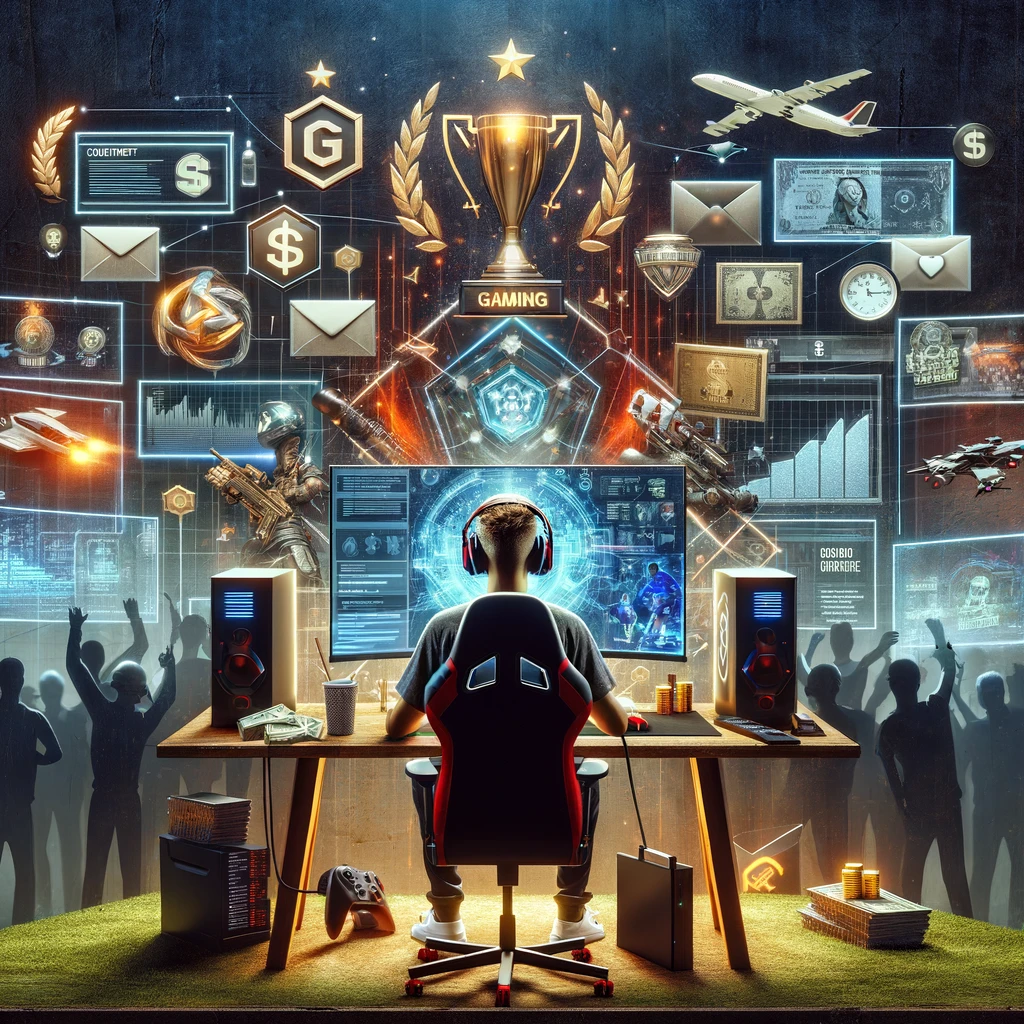Gaming, often viewed as mere entertainment, has been revealed through scientific research as beneficial for mental and physical health. You can read our article titled What is Gaming? Studies indicate that gaming enhances cognitive functions like spatial awareness, memory, and problem-solving skills. It also improves social skills, decision-making capabilities, and mental health. For instance, surgeons who play video games make fewer mistakes in procedures, demonstrating improved manual dexterity.

Additionally, gaming increases brain’s gray matter, boosting connectivity and muscle control, and can improve vision by enhancing the ability to discern details in cluttered spaces. Socially, gamers often exhibit better social skills and academic performance, debunking stereotypes of antisocial behavior. Moreover, gaming offers stress relief and can be a fun learning tool, covering a wide range of subjects from history to science. While excessive gaming can lead to addiction, moderate gaming, especially in various genres like strategy, action, and puzzle games, provides a balanced array of benefits. Therefore, when utilized responsibly, gaming can indeed be a useful and enriching part of life.
Is Gaming Good for Anything?
Gaming, often perceived negatively, offers numerous benefits, enhancing cognitive abilities like spatial awareness, decision-making, and problem-solving. Research shows it improves hand-eye coordination, increases brain matter, and aids in memory and focus, beneficial in both educational and professional contexts. Role-playing games (RPGs) and strategy games encourage planning and strategic thinking, while action games enhance quick decision-making and attention to detail. Socially, gaming can foster teamwork and communication skills, especially in multiplayer settings.
However, excessive gaming can lead to addiction, recognized by the World Health Organization, and potentially impact emotional control and social behavior. The key is moderation and balance, as gaming can be both educational and a tool for cognitive development, improving skills transferable to real-life situations. Parents are advised to monitor content and screen time, ensuring a healthy balance between gaming and other activities. Overall, when used responsibly, gaming can be a valuable addition to both personal and educational growth.
Is Gaming Important in Life?
Gaming plays a significant role in life by enhancing various mental and cognitive skills. It improves problem-solving, logic, and hand-eye coordination, contributing to better spatial and fine motor skills. Regular gaming boosts multitasking abilities, decision-making speed, and accuracy. It fosters prosocial behaviors and enhances social connections through cooperative and competitive play, especially in online environments. Gaming also benefits physical health by promoting activities in VR and mobile games and improving eyesight and attention to detail.

Furthermore, it’s an effective tool for learning and memory enhancement, as it requires remembering game mechanics and strategies. Importantly, gaming offers relaxation and fun, providing a joyful escape and mental stimulation. While excessive gaming can have drawbacks, moderate gaming contributes positively to both personal and professional development, aiding in the development of skills that are valuable in everyday life. Overall, gaming, when balanced, can be a meaningful and beneficial aspect of life.
Does Gaming Help Your Brain?
Gaming significantly impacts brain function and structure, offering both positive and negative effects. It enhances cognitive abilities, such as problem-solving, attention, and spatial skills. Playing action games, in particular, can improve visual contrast sensitivity and multitasking skills, beneficial in everyday life.
Regular gamers show increased gray matter in the brain, which facilitates interconnectivity and improves self-perception. However, excessive gaming can lead to addiction and changes in the brain’s reward system, similar to other addictive disorders. Despite potential drawbacks, gaming, when balanced, can enhance cognitive functions, decision-making, and memory, making it a useful tool for mental development. In moderation, gaming can be a positive influence on brain health, aiding in cognitive skill development and offering potential protection against age-related cognitive decline. However, it’s essential to maintain a balance to avoid negative impacts like addiction or reduced physical activity.
Is Gaming a Career or Not?
Gaming has evolved into a viable career choice, particularly for those passionate about video game graphics and the virtual world. With the gaming industry’s growth, reaching a value of $1.8 billion in India alone, opportunities in eSports and other gaming sectors have expanded. This industry is generating thousands of jobs, with roles ranging from game development to marketing and operations.

However, it’s not a traditional career path and can be highly competitive and demanding, requiring more than just playing games. Professional gaming involves strategic thinking, content creation, and often additional activities like streaming or YouTube to supplement income. Despite potential challenges, such as increased screen time and the risk of addiction, gaming offers diverse career opportunities. Success in this field requires early planning, skill development, and understanding the industry’s demands. With the right approach, gaming can be more than just a hobby; it can be a fulfilling and potentially lucrative career.
Gaming Series
1- What is gaming?
2- What do gamers do?
3- Is gaming useful in life?
4- What is an example of gaming?
5- What defines a true gamer?
6- How do we be a gamer?
7- Is being a gamer a job?
8- How can I be a healthy gamer?
9- Do gamers get paid?
10- What is the purpose of gaming?










